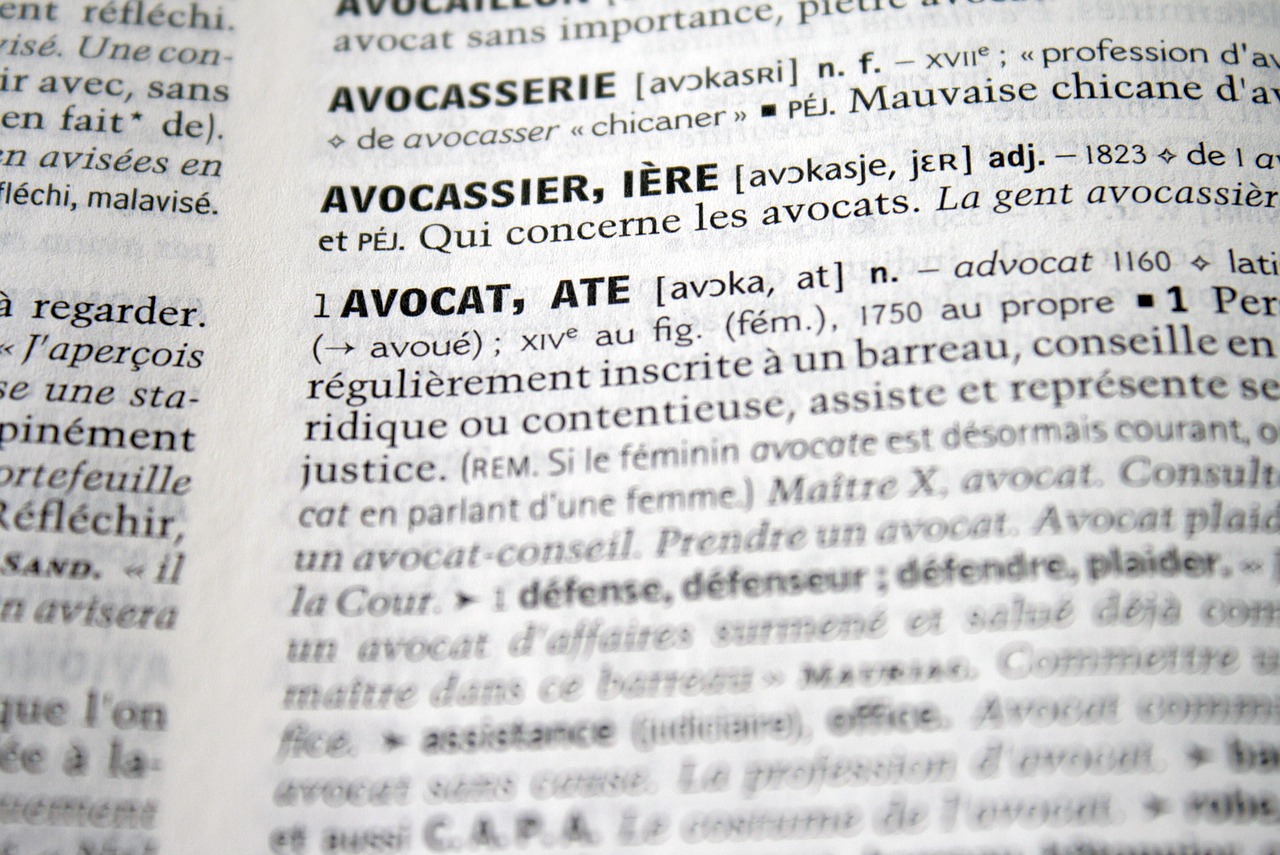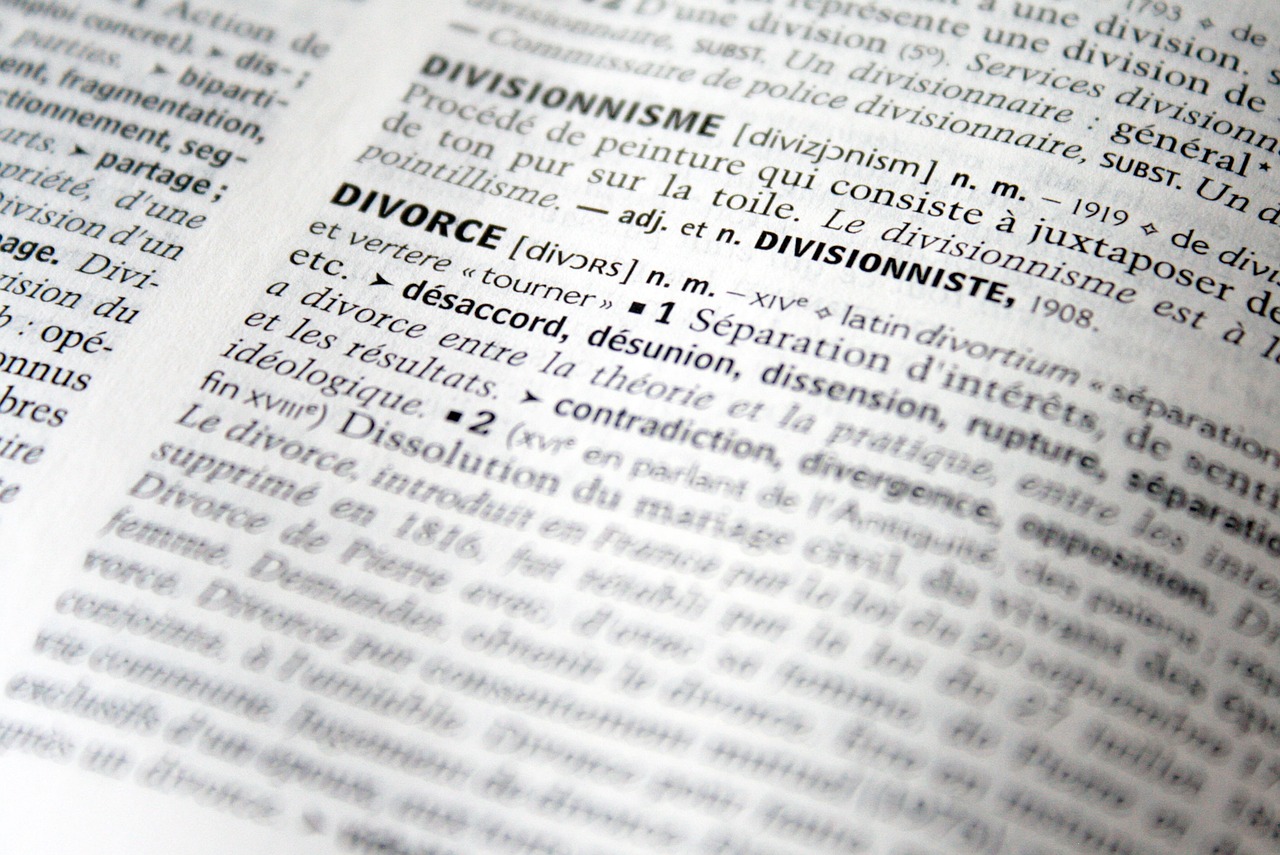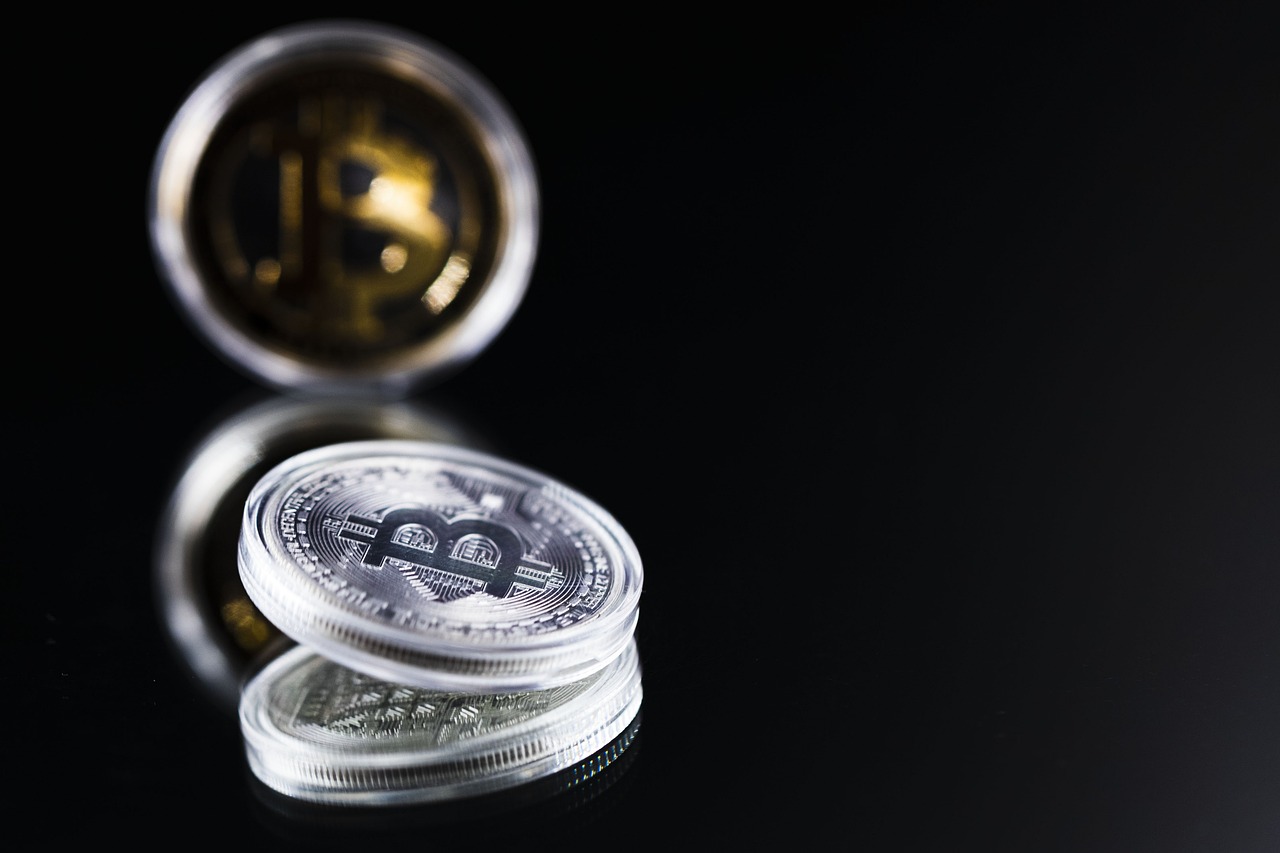The Importance of Legal Due Diligence in Crypto Investments
In the rapidly evolving world of cryptocurrency, the allure of high returns often overshadows the inherent risks associated with these digital assets. As an investor, it’s crucial to understand that diving headfirst into crypto investments without proper preparation can be akin to sailing in uncharted waters without a map. This is where legal due diligence comes into play. Think of it as your navigator, guiding you through the potential pitfalls and ensuring that your investment journey is both safe and profitable.
Legal due diligence refers to a thorough investigation and appraisal of a potential investment, specifically focusing on the legal aspects that might impact its viability. This process is not merely a formality; it is a critical step that can mean the difference between a successful investment and a financial disaster. By conducting comprehensive legal due diligence, investors can identify potential risks, ensure compliance with regulations, and ultimately protect their investments from unforeseen legal complications.
Imagine you’re about to purchase a house. You wouldn’t just look at the exterior and decide to buy, right? You’d want to know about the title, any liens, zoning laws, and more. The same principle applies to cryptocurrency investments. The digital landscape is fraught with complexities, including regulatory challenges and intellectual property concerns that can drastically affect the value and legality of your investment.
In this article, we'll delve into the critical components of legal due diligence in crypto investments, the risks associated with inadequate due diligence, and best practices for conducting thorough evaluations. By the end, you’ll understand how vital it is to equip yourself with the right knowledge and resources before making any investment decisions in the dynamic world of cryptocurrencies.
- What is legal due diligence in cryptocurrency?
Legal due diligence in cryptocurrency refers to the process of evaluating the legal aspects of a potential crypto investment to assess risks and ensure compliance with relevant laws. - Why is legal due diligence important?
It is essential to mitigate risks, avoid legal liabilities, and protect investments from unforeseen complications that could arise from regulatory non-compliance or legal disputes. - What are the key components of legal due diligence?
The key components include regulatory compliance, intellectual property rights, and contract reviews. - How can I conduct effective legal due diligence?
Engaging legal experts and utilizing technology and due diligence tools can significantly enhance the effectiveness of the due diligence process.

Understanding Legal Due Diligence
Legal due diligence is like the detective work of the investment world. Imagine you're about to buy a house; you wouldn't just stroll in, hand over your cash, and hope for the best, right? You'd want to check the foundation, the plumbing, and whether the neighborhood is safe. Similarly, in the realm of cryptocurrency investments, legal due diligence is the process of thoroughly investigating and assessing all potential legal risks and compliance issues that could affect the viability and security of your investment. It’s not just a formality; it’s a crucial step that can save you from significant headaches down the line.
When diving into the world of crypto, it's essential to understand that the landscape is constantly evolving. Regulations are changing, new technologies are emerging, and potential risks lurk around every corner. Legal due diligence helps investors navigate these turbulent waters by providing a comprehensive appraisal of the investment opportunity. This process involves examining various aspects, such as regulatory compliance, intellectual property rights, and contractual obligations. Each of these components plays a vital role in determining whether an investment is sound or fraught with peril.
One of the key aspects of legal due diligence is regulatory compliance. In the crypto space, this means understanding the laws and regulations that govern cryptocurrency transactions. It’s like having a map when you’re exploring a new city; without it, you might find yourself lost or, worse, in a dangerous neighborhood. By ensuring that a cryptocurrency project complies with applicable laws, investors can avoid potential legal repercussions and penalties that could arise from non-compliance.
Moreover, due diligence also involves scrutinizing intellectual property rights. This is critical because the technology behind cryptocurrencies often involves complex algorithms and innovations that need to be protected. If an investor fails to evaluate these rights properly, they might end up supporting a project that infringes on someone else's intellectual property, leading to costly lawsuits and financial losses.
In short, understanding legal due diligence is about equipping yourself with the knowledge and insights needed to make informed investment decisions. It’s the armor that protects you against the unpredictable nature of the crypto market. By investing time and resources into thorough due diligence, you’re not just protecting your investment; you’re also giving yourself a fighting chance in a fast-paced and often volatile environment.

Key Components of Legal Due Diligence
When diving into the world of cryptocurrency investments, it's essential to grasp the . This process is not just a formality; it's a critical step that can save investors from potential pitfalls. Legal due diligence encompasses several vital elements that collectively ensure a thorough evaluation of a crypto investment. By understanding these components, investors can make informed decisions that align with their financial goals and risk tolerance.
One of the primary components of legal due diligence is regulatory compliance. This involves understanding the myriad of laws and regulations that govern cryptocurrency transactions. Given the rapidly evolving nature of the crypto landscape, investors must stay updated on both international and local regulations. International regulations often include stringent requirements such as anti-money laundering (AML) and know your customer (KYC) protocols, which are designed to prevent illegal activities and ensure the legitimacy of transactions. For instance, failing to comply with these regulations can lead to severe penalties, including hefty fines or even imprisonment in extreme cases.
Furthermore, local laws play a significant role in determining the legality of a cryptocurrency investment. Each country has its own set of regulations that can vary dramatically. For example, while some jurisdictions may embrace cryptocurrency and blockchain technology, others may impose strict bans or heavy restrictions. Therefore, understanding the local legal landscape is crucial for investors looking to navigate this complex environment successfully.
Another essential aspect of legal due diligence is the evaluation of intellectual property rights. In the fast-paced world of cryptocurrency, protecting intellectual property is paramount. Investors need to assess whether the technology behind a cryptocurrency is patented or if there are any potential infringements on existing patents. This evaluation helps to ensure that the investment is secure and that the underlying technology is not at risk of legal challenges. A robust intellectual property strategy can be a significant asset, providing a competitive edge in the market.
Lastly, conducting thorough contract reviews is a critical component of legal due diligence. Investors must carefully examine all agreements associated with the investment, including partnership contracts, service agreements, and any terms of service related to the cryptocurrency. These documents often contain clauses that can significantly impact the investment's viability. For instance, hidden liabilities or unfavorable terms can lead to unexpected costs down the line. By scrutinizing these contracts, investors can uncover potential red flags and make more informed decisions.
In summary, the key components of legal due diligence—regulatory compliance, intellectual property rights, and contract reviews—are fundamental for anyone looking to invest in cryptocurrency. By paying close attention to these areas, investors can mitigate risks and enhance their chances of success in this exciting yet volatile market.
- What is legal due diligence in cryptocurrency? Legal due diligence is the process of assessing legal risks and compliance issues associated with a potential investment in cryptocurrency.
- Why is regulatory compliance important? Regulatory compliance is crucial to avoid legal repercussions and penalties that can arise from non-compliance with local and international laws.
- How can I ensure my investment's intellectual property is protected? Conduct thorough evaluations of the technology's intellectual property rights and ensure that there are no potential infringements.
- What should I look for in contract reviews? Pay attention to hidden liabilities, unfavorable terms, and any clauses that could impact the investment's viability.

Regulatory Compliance
In the rapidly evolving world of cryptocurrency, stands out as a cornerstone for successful investments. As an investor, understanding the legal frameworks that govern cryptocurrency transactions is not just advisable; it’s essential. Without a solid grasp of these regulations, you might as well be sailing a ship without a compass—lost and vulnerable to the unpredictable tides of legal repercussions. The crypto space is notorious for its complexity, and each jurisdiction has its own set of rules that can significantly impact your investments.
One of the primary reasons why regulatory compliance is so crucial is the potential for legal repercussions. Engaging in transactions that violate local or international laws can lead to hefty fines, legal battles, or even criminal charges. For instance, failing to comply with anti-money laundering (AML) and know your customer (KYC) regulations can expose you to serious risks. These regulations are designed to prevent illicit activities and protect both investors and the integrity of the financial system. Ignoring them is akin to playing with fire—you might get burned.
To navigate this complex landscape, investors need to be aware of two key categories of regulations: international regulations and local laws. International regulations often set the framework for how cryptocurrencies can be traded and utilized across borders. For instance, the Financial Action Task Force (FATF) has guidelines that member countries are encouraged to follow, which include strict KYC and AML requirements. On the other hand, local laws can vary dramatically from one country to another. Understanding these differences is crucial, as what may be legal in one jurisdiction could be illegal in another.
Here’s a quick overview of some regulatory aspects to consider:
| Regulatory Aspect | Description |
|---|---|
| AML Regulations | Prevent money laundering activities by requiring businesses to monitor transactions and report suspicious activities. |
| KYC Requirements | Mandate businesses to verify the identity of their clients to prevent fraud and illegal activities. |
| Tax Compliance | Ensure that investors report their cryptocurrency earnings to tax authorities to avoid penalties. |
In conclusion, regulatory compliance in the cryptocurrency space is not just a box to tick; it's a vital component of a sound investment strategy. By staying informed about international regulations and local laws, you empower yourself to make informed decisions and protect your investments from potential pitfalls. Remember, in the world of crypto, knowledge is not just power; it’s your best defense against the unknown.

International Regulations
When it comes to investing in cryptocurrencies, understanding is not just a good idea—it's essential. The world of crypto is a complex web of laws and guidelines that vary significantly from one country to another. For instance, while some nations have embraced cryptocurrencies and established clear regulatory frameworks, others have taken a more cautious approach, imposing strict restrictions or outright bans. This disparity can create challenges for investors who are eager to dive into the market but may not fully grasp the legal landscape.
One of the most critical aspects of international regulations is the compliance with anti-money laundering (AML) and know your customer (KYC) requirements. These regulations are designed to prevent illicit activities, such as money laundering and terrorist financing, by ensuring that financial institutions and crypto exchanges verify the identities of their clients. The requirements can differ greatly depending on the jurisdiction:
| Country | KYC Requirements | AML Regulations |
|---|---|---|
| United States | Mandatory for all exchanges | Strict enforcement with heavy penalties |
| European Union | Varies by member state | Comprehensive AML directives in place |
| China | Prohibited for exchanges | Strictly enforced bans on crypto transactions |
| Switzerland | Flexible but requires identity verification | Robust AML laws with a focus on transparency |
As you can see, the regulatory environment can significantly impact how cryptocurrencies are traded and managed across borders. Investors must be diligent in researching these regulations before making any commitments, as non-compliance can lead to severe legal repercussions, including hefty fines and loss of investment. Additionally, some countries may impose taxes on crypto transactions, which can further complicate the investment landscape.
Moreover, staying updated with changes in regulations is crucial. Many countries are continuously evolving their stance on cryptocurrencies, influenced by market trends, technological advancements, and international cooperation. For example, the Financial Action Task Force (FATF) has been actively working to establish global standards for crypto regulation, which can affect multiple jurisdictions simultaneously. Therefore, investors should regularly check for updates from local regulatory bodies and international organizations to ensure they remain compliant.
In summary, navigating international regulations is a daunting yet necessary task for anyone looking to invest in cryptocurrencies. By understanding the various laws and requirements, investors can not only protect themselves from potential legal issues but also position themselves for success in the ever-evolving world of digital currencies.
- What are the main international regulations affecting cryptocurrency?
Key regulations include AML and KYC requirements, which vary by jurisdiction and are designed to prevent illegal activities. - How can I stay updated on regulatory changes?
Follow updates from local regulatory bodies, international organizations like the FATF, and news sources specializing in cryptocurrency. - What happens if I don't comply with regulations?
Non-compliance can result in heavy fines, legal actions, and potential loss of investment.

Local Laws and Guidelines
When diving into the world of cryptocurrency investments, understanding is not just important; it's absolutely essential. Each country has its own set of regulations that govern how cryptocurrencies can be traded, used, and taxed. This patchwork of laws can be quite complex, and failing to grasp them can lead to serious consequences for investors. Imagine trying to navigate a maze blindfolded – that's what it feels like when you skip over local regulations.
For instance, in the United States, the regulatory environment can differ significantly from state to state. While some states are welcoming and have established clear frameworks for cryptocurrency operations, others may impose strict restrictions or outright bans. This inconsistency means that investors must do their homework, not only at the federal level but also at the state level. The same goes for countries like Germany and China, where local regulations can change rapidly, impacting the legality and profitability of crypto investments.
Furthermore, local laws often include tax implications that can affect your bottom line. In many jurisdictions, cryptocurrencies are treated as property, meaning that any gains from trading them could be subject to capital gains tax. Understanding these tax obligations is crucial, as failing to report earnings could lead to hefty fines or even legal action. For example, in the UK, HM Revenue and Customs (HMRC) has specific guidelines on how cryptocurrencies should be taxed, and ignorance is not an acceptable defense.
To help investors grasp the importance of local laws, here's a quick overview of key aspects to consider:
- Licensing Requirements: Some countries require businesses dealing in cryptocurrencies to obtain specific licenses. Not adhering to these requirements can result in penalties.
- Tax Regulations: Understanding how your local tax authority views cryptocurrency is vital for compliance and avoiding unexpected tax bills.
- Consumer Protection Laws: These laws vary widely and can affect how exchanges operate and how investors are protected in case of fraud.
In conclusion, being well-versed in local laws and guidelines is like having a roadmap in the unpredictable terrain of cryptocurrency investments. It not only safeguards your investment but also positions you for long-term success in a rapidly evolving market. By staying informed about local regulations, you can make educated decisions that minimize risk and enhance your investment strategy.
- What are the most important local laws to consider when investing in cryptocurrencies?
Key laws include licensing requirements, tax regulations, and consumer protection laws, which can vary significantly by jurisdiction.
- How can I stay updated on changes in local crypto regulations?
Follow reputable news sources, subscribe to regulatory updates, and consult with legal experts in the field.
- What are the risks of ignoring local regulations?
Ignoring local regulations can lead to financial penalties, legal liabilities, and damage to your reputation as an investor.

Intellectual Property Rights
When diving into the world of cryptocurrency investments, one of the often-overlooked aspects is the significance of . Think of intellectual property (IP) as the backbone of innovation; it protects the creations of the mind, ensuring that inventors and creators can reap the benefits of their hard work. In the crypto realm, this translates to safeguarding the technology and concepts that underpin various projects. Without proper IP protection, investors might find themselves entangled in legal disputes over ownership, which can be both time-consuming and financially draining.
Investors need to ask themselves: What happens if the technology behind a cryptocurrency is not legally sound? The repercussions can be severe. For instance, if a project is built on technology that infringes on someone else's patent, the original creators could face lawsuits, potentially leading to project shutdowns. This scenario not only jeopardizes the investment but also threatens the entire ecosystem surrounding that cryptocurrency.
To effectively assess intellectual property rights when evaluating a crypto project, consider the following key elements:
- Patent Status: Check if the technology is patented or if there are existing patents that might affect its use.
- Trademarks: Ensure that the branding and logos used by the project are legally protected to avoid confusion with other entities.
- Licensing Agreements: Understand any licensing agreements in place that might limit the project's operational capabilities.
Moreover, it’s essential to conduct a thorough analysis of any potential infringements or disputes. Engaging with legal experts who specialize in intellectual property can provide a clearer picture of the risks involved. They can help identify any red flags that might not be immediately obvious to the average investor.
In conclusion, intellectual property rights play a crucial role in the realm of cryptocurrency investments. By ensuring that a project has robust IP protections in place, investors can significantly mitigate risks associated with ownership disputes and potential legal issues. After all, investing in a project with a solid foundation not only enhances its viability but also contributes to the overall growth and sustainability of the crypto market.
- What are intellectual property rights in the context of cryptocurrency?
Intellectual property rights in cryptocurrency refer to the legal protections granted to the creators of technologies, brands, and concepts within the crypto space, ensuring their innovations are safeguarded against unauthorized use. - Why is it important to evaluate IP rights before investing?
Evaluating IP rights helps investors avoid potential legal disputes and financial losses associated with infringements, thereby protecting their investments and ensuring project viability. - How can I assess the IP rights of a crypto project?
Investors can assess IP rights by reviewing patent filings, trademark registrations, and licensing agreements, as well as consulting with legal experts specializing in intellectual property.

Risks of Inadequate Due Diligence
When it comes to investing in cryptocurrencies, the phrase "knowledge is power" couldn't be more accurate. Without proper legal due diligence, investors can find themselves sailing into treacherous waters without a compass. The risks associated with inadequate due diligence can be staggering, often leading to significant financial losses, legal liabilities, and lasting damage to one's reputation. It's almost like diving into a pool without checking if there's water in it first—you're bound to get hurt!
One of the most immediate risks is the potential for financial losses. Imagine putting your hard-earned money into a cryptocurrency project that appears promising on the surface, only to discover later that it has undisclosed liabilities or an unsustainable business model. This scenario is all too common, and the consequences can be devastating. Investors may find themselves not just losing their investment but also facing additional financial burdens as they attempt to recover their losses. For example:
| Scenario | Potential Financial Loss |
|---|---|
| Investing in a project with hidden debts | $100,000 |
| Backing a cryptocurrency with no real use case | $50,000 |
Next up, we have legal liabilities. Failing to conduct thorough due diligence can expose investors to a slew of legal troubles. Imagine being hit with a lawsuit or regulatory action because you didn't bother to verify the legitimacy of a project. Not only could this lead to costly legal fees, but it could also result in fines or penalties that could cripple your investment strategy. The reality is that the legal landscape surrounding cryptocurrencies is complex and ever-evolving, making it crucial for investors to stay informed.
Moreover, the repercussions of inadequate due diligence extend beyond just financial and legal risks; they can also inflict serious damage to an investor's reputation. In the world of crypto, reputation is everything. If you're associated with a failed project or a scam, your credibility can take a nosedive. This could lead to lost opportunities, as other investors may be hesitant to collaborate with someone who has a tarnished reputation. It's like trying to sell a car with a history of accidents—no one wants to buy it!
In summary, the risks of inadequate due diligence in cryptocurrency investments are multifaceted and can have far-reaching consequences. From financial losses and legal liabilities to reputational damage, the stakes are high. Therefore, taking the time to conduct thorough legal due diligence is not just a good practice; it's a necessity for anyone looking to navigate the often unpredictable waters of cryptocurrency investment.
- What is legal due diligence in crypto investments? Legal due diligence is the process of evaluating potential investments to identify legal risks and ensure compliance with applicable laws.
- Why is regulatory compliance important? Regulatory compliance helps avoid legal penalties and ensures that investments are legitimate and secure.
- What can happen if I skip due diligence? Skipping due diligence can lead to financial losses, legal liabilities, and damage to your reputation.
- How can I ensure thorough due diligence? Engaging legal experts and utilizing technology can help streamline the due diligence process.

Financial Losses
When it comes to investing in the volatile world of cryptocurrencies, the stakes are incredibly high. One misstep can lead to significant that can cripple even the most seasoned investors. Imagine pouring your hard-earned money into a project that seems promising, only to discover later that it was built on shaky ground. This scenario is all too common in the crypto space, where the lack of thorough legal due diligence can expose investors to hidden liabilities and unsustainable business models.
Investors must recognize that the absence of comprehensive due diligence can result in not just minor setbacks, but catastrophic financial repercussions. For instance, consider a situation where an investor fails to investigate the legal standing of a cryptocurrency project. If that project is found to be operating illegally or in violation of regulations, the investor could face hefty fines, loss of capital, and even potential criminal charges. Such outcomes can be devastating, leading to a substantial depletion of one's investment portfolio.
To illustrate the potential financial impact, let's take a look at a hypothetical case:
| Scenario | Potential Loss | Consequences |
|---|---|---|
| Investing in a project without proper legal checks | $100,000 | Legal penalties, loss of investment, damaged reputation |
| Failure to identify hidden liabilities | $50,000 | Loss of trust from stakeholders, potential lawsuits |
| Investing in a non-compliant cryptocurrency | $200,000 | Seizure of assets, regulatory fines |
As shown in the table, the financial consequences of inadequate due diligence can be staggering. These losses not only affect the investor's wallet but can also lead to a ripple effect, impacting their future investment opportunities and overall market reputation. In the world of crypto, where trust is paramount, a tarnished reputation can be just as damaging as financial loss.
Ultimately, the lesson here is clear: conducting thorough legal due diligence is not just a recommendation; it's a necessity. By investing the time and resources into understanding the legal landscape of a cryptocurrency project, investors can significantly mitigate the risk of financial losses. After all, a well-informed investor is a successful investor.
- What is legal due diligence in cryptocurrency?
Legal due diligence involves evaluating the legal aspects of a cryptocurrency investment to identify risks and ensure compliance with regulations.
- Why is regulatory compliance important?
Regulatory compliance helps avoid legal repercussions and ensures that investments are legitimate and protected.
- How can I mitigate financial losses in crypto investments?
Conduct thorough legal due diligence, engage legal experts, and stay informed about the latest regulations and market trends.

Legal Liabilities
When it comes to investing in cryptocurrencies, one of the most significant risks that investors face is the potential for . This risk often stems from inadequate due diligence, which can expose investors to a range of legal challenges that may not be apparent at first glance. Imagine diving into a deep pool without checking its depth first; the consequences could be dire. In the same way, failing to thoroughly investigate the legal landscape surrounding a crypto investment can lead to serious repercussions.
Legal liabilities in the crypto space can manifest in various forms, including lawsuits, regulatory penalties, and even criminal charges. For instance, if an investor backs a cryptocurrency project that turns out to be a scam or operates without proper licensing, they may find themselves embroiled in legal disputes. This could lead to significant financial losses, not only from the investment itself but also from legal fees and potential settlements. In a worst-case scenario, an investor could face criminal charges if it is determined that they knowingly participated in illegal activities.
The consequences of inadequate due diligence can be particularly severe in the rapidly evolving world of cryptocurrency. Laws and regulations are often in flux, meaning that what may have been compliant yesterday could very well be illegal tomorrow. For example, consider a situation where an investor fails to adhere to anti-money laundering (AML) regulations. If found in violation, they could face hefty fines or even jail time, depending on the severity of the infraction. This highlights the importance of staying informed about the current legal environment and ensuring compliance at all times.
Furthermore, legal liabilities can extend beyond the immediate financial impact. They can also damage an investor's reputation and credibility in the market. In the world of cryptocurrency, where trust is paramount, being associated with a failed or illegal project can tarnish an investor's image, making it difficult to engage in future investments. This ripple effect can be detrimental, as relationships with other investors, partners, and regulatory bodies may be strained.
To mitigate these risks, investors must adopt a proactive approach to legal due diligence. This involves not only understanding the specific legal requirements of the jurisdictions in which they are investing but also engaging with experienced legal professionals who can provide guidance and insights. By doing so, investors can better navigate the complex legal landscape of cryptocurrency and protect themselves from potential liabilities.
- What is legal due diligence? Legal due diligence is the process of thoroughly evaluating the legal aspects of a potential investment, including compliance with regulations, intellectual property rights, and potential liabilities.
- Why is legal due diligence important in crypto investments? Legal due diligence helps investors identify potential risks and compliance issues, ensuring they make informed decisions and protect themselves from legal repercussions.
- What can happen if I neglect legal due diligence? Neglecting legal due diligence can lead to financial losses, legal liabilities, and damage to your reputation, potentially resulting in lawsuits or regulatory penalties.
- How can I conduct effective legal due diligence? Engaging legal experts, staying informed about regulations, and utilizing technology and tools can streamline the due diligence process and enhance your investment strategy.

Best Practices for Conducting Due Diligence
When it comes to navigating the complex world of cryptocurrency investments, conducting legal due diligence is not just a good idea—it's essential. But how can investors ensure they are covering all their bases? Here are some best practices that can help you conduct effective due diligence and safeguard your investments.
First and foremost, engaging legal experts who specialize in cryptocurrency is a game-changer. These professionals have the knowledge and experience to navigate the intricate legal landscape of the crypto world. They can help you understand the nuances of regulations and ensure that you are compliant with both local and international laws. Imagine trying to solve a complex puzzle without the right pieces; that’s what it’s like to dive into crypto without expert guidance. Their insights can save you from potential pitfalls that could lead to hefty fines or legal troubles.
In addition to consulting with legal professionals, utilizing technology and due diligence tools can significantly enhance your evaluation process. In today’s digital age, there are numerous platforms and software designed to streamline the due diligence process. These tools can help you analyze data more efficiently, assess risks, and keep track of regulatory changes. For instance, automated compliance checks can alert you to any red flags in real-time, allowing you to make informed decisions quickly. Think of these tools as your personal assistants, tirelessly working in the background to ensure you stay ahead of the game.
Moreover, it’s important to develop a comprehensive checklist that covers all aspects of due diligence. This checklist should include, but not be limited to, the following:
- Reviewing the project’s whitepaper and business model.
- Assessing the team’s background and experience.
- Conducting a thorough analysis of regulatory compliance.
- Evaluating intellectual property rights associated with the technology.
- Identifying any potential legal liabilities.
By having a structured approach, you can ensure that no stone is left unturned. It’s like preparing for a big exam; the more you study and prepare, the better your chances of success. Additionally, keeping detailed records of your findings and decisions can be invaluable. This documentation not only helps you stay organized but can also provide crucial evidence if any issues arise in the future.
Finally, remember that the landscape of cryptocurrency is constantly evolving. Staying updated with the latest trends, regulations, and technologies is vital. Subscribing to industry newsletters, attending conferences, and participating in online forums can help you remain informed and adaptable. In the fast-paced world of crypto, knowledge is power, and being proactive can make all the difference in your investment journey.
Q: What is legal due diligence in cryptocurrency?
A: Legal due diligence in cryptocurrency involves a thorough evaluation of potential investments to assess legal risks and ensure compliance with regulations.
Q: Why is engaging legal experts important?
A: Legal experts provide essential guidance in navigating the complex regulations surrounding cryptocurrency, helping investors avoid legal pitfalls.
Q: How can technology assist in the due diligence process?
A: Technology can streamline due diligence by offering tools that automate compliance checks, analyze data, and track regulatory changes efficiently.
Q: What should be included in a due diligence checklist?
A: A due diligence checklist should include reviewing the project’s whitepaper, assessing the team’s experience, evaluating regulatory compliance, and identifying potential legal liabilities.
Q: How can I stay updated on cryptocurrency regulations?
A: Staying updated can be achieved by subscribing to industry newsletters, attending conferences, and engaging in online communities related to cryptocurrency.

Engaging Legal Experts
When diving into the complex world of cryptocurrency investments, engaging legal experts is not just a wise decision; it's a critical necessity. Think of it like navigating a treacherous ocean; having an experienced captain can make all the difference between reaching your destination safely or capsizing in turbulent waters. Legal experts who specialize in cryptocurrency bring a wealth of knowledge and experience that can help investors avoid pitfalls that could lead to financial ruin or regulatory trouble.
These professionals are well-versed in the intricate web of laws and regulations that govern the crypto landscape. They can help you understand the nuances of regulatory compliance, ensuring that you adhere to both local and international laws. For instance, they can explain the implications of anti-money laundering (AML) and know your customer (KYC) regulations, which are essential for maintaining the legality of your investments. Without this guidance, you might unknowingly step into a minefield of legal issues that could jeopardize your entire investment.
Moreover, legal experts can assist in conducting thorough due diligence by reviewing contracts, assessing intellectual property rights, and identifying any potential legal liabilities. This level of scrutiny is vital, as it helps you uncover any hidden risks that might not be immediately apparent. For example, if you're considering investing in a new cryptocurrency project, a legal expert can help you evaluate the legitimacy of the project's whitepaper and the team's credentials. Without this thorough examination, you could end up investing in a project that lacks a solid foundation.
Another important aspect of engaging legal experts is the peace of mind they provide. Knowing that you have a knowledgeable professional in your corner can alleviate the stress associated with navigating the often murky waters of cryptocurrency investments. This support can empower you to make informed decisions, allowing you to focus on your investment strategy rather than worrying about potential legal repercussions.
In summary, engaging legal experts is an essential step for anyone serious about investing in cryptocurrency. Their expertise not only helps mitigate risks but also enhances your overall understanding of the crypto landscape. So, before you make your next investment, consider bringing a legal expert on board to ensure you're sailing smoothly through the complex world of cryptocurrency.
- Why should I hire a legal expert for cryptocurrency investments? Hiring a legal expert can help you navigate complex regulations, ensure compliance, and avoid potential legal pitfalls.
- What qualifications should I look for in a legal expert? Look for professionals with experience in cryptocurrency law, regulatory compliance, and intellectual property rights.
- How can legal experts assist in due diligence? They can review contracts, assess legal risks, and provide insights into regulatory requirements, ensuring a thorough evaluation of your investments.
- Is engaging a legal expert expensive? While there may be costs involved, the potential savings from avoiding legal issues and bad investments far outweigh the initial expense.

Utilizing Technology and Tools
In today's fast-paced digital world, the integration of technology and specialized tools has revolutionized the way investors conduct legal due diligence in the cryptocurrency space. Gone are the days when due diligence was a tedious, manual process that consumed countless hours. Now, with just a few clicks, investors can access a wealth of information that can significantly impact their investment decisions. But how do we leverage these tools effectively?
First and foremost, utilizing blockchain analytics tools can provide invaluable insights into the transaction history and behavior of a cryptocurrency. These tools analyze on-chain data, helping investors understand the flow of funds and identify any suspicious activities that may indicate potential fraud or regulatory issues. For example, platforms like Chainalysis and Elliptic offer comprehensive solutions that allow investors to track transactions and assess the overall health of a cryptocurrency project.
Moreover, employing legal research software can streamline the process of gathering information about regulatory compliance. Tools like LexisNexis and Westlaw provide access to a vast database of legal documents, case law, and regulatory updates. This can be particularly beneficial for investors looking to stay ahead of the curve in an ever-evolving legal landscape. By staying informed about the latest regulations and compliance requirements, investors can make more informed decisions and mitigate potential risks.
Another essential aspect of utilizing technology is the use of due diligence platforms. These platforms often combine various functionalities, offering a centralized hub for managing all aspects of the due diligence process. For instance, tools like Diligent and Intralinks allow investors to organize documents, track progress, and collaborate with legal experts seamlessly. This not only saves time but also ensures that no critical detail is overlooked during the evaluation process.
Furthermore, employing artificial intelligence (AI) in due diligence can significantly enhance the efficiency of the process. AI-driven tools can analyze vast amounts of data quickly, identifying patterns and anomalies that a human might miss. This capability can be particularly useful in assessing the credibility of a cryptocurrency project, as AI can evaluate factors such as market trends, social media sentiment, and historical performance metrics. By harnessing the power of AI, investors can gain a more comprehensive understanding of their potential investments.
In summary, the utilization of technology and tools in legal due diligence is not just a trend; it's a necessity in the cryptocurrency investment landscape. By embracing these advancements, investors can enhance their ability to navigate complex legal frameworks, identify potential risks, and ultimately make more informed decisions. As we continue to witness the rapid evolution of the crypto market, staying ahead through technology will be a crucial factor in achieving success.
- What is legal due diligence? Legal due diligence is the process of evaluating the legal aspects of a potential investment, ensuring compliance with regulations and identifying any legal risks.
- Why is technology important in due diligence? Technology streamlines the due diligence process, providing faster access to information and insights that can help investors make informed decisions.
- What tools can assist in legal due diligence? Tools such as blockchain analytics platforms, legal research software, due diligence management systems, and AI-driven analysis tools can significantly enhance the due diligence process.
- How can I ensure compliance with regulations? Engaging legal experts and utilizing technology to stay informed about regulatory changes can help ensure compliance with local and international laws.
Frequently Asked Questions
- What is legal due diligence in cryptocurrency investments?
Legal due diligence in cryptocurrency investments is a thorough assessment process that evaluates potential legal risks and compliance issues before making an investment. It helps investors understand the regulatory landscape and ensures that the investment is secure and viable.
- Why is regulatory compliance important in crypto investments?
Regulatory compliance is crucial because it helps investors avoid legal repercussions and penalties. Since the cryptocurrency space is governed by various laws, understanding and adhering to these regulations can significantly impact the legality and profitability of an investment.
- What are the risks of inadequate legal due diligence?
Inadequate legal due diligence can lead to several risks, including financial losses from investing in projects with hidden liabilities, legal liabilities resulting in lawsuits or regulatory actions, and damage to an investor's reputation. These factors can severely affect an investor's financial standing.
- How can I conduct effective legal due diligence?
To conduct effective legal due diligence, it's essential to engage legal experts who specialize in cryptocurrency. They can provide insights and navigate complex legal landscapes. Additionally, utilizing technology and due diligence tools can streamline the process, making it easier to analyze data and assess risks.
- What are some best practices for conducting due diligence?
Some best practices for conducting due diligence include hiring experienced legal professionals, thoroughly reviewing regulatory requirements, and leveraging technological tools for data analysis. These steps ensure that investors are well-informed and protected before making investment decisions.
- How do international regulations affect crypto investments?
International regulations affect crypto investments by imposing various compliance requirements, such as anti-money laundering (AML) and know your customer (KYC) laws. Investors must navigate these regulations, which can vary by jurisdiction, to ensure their investments are compliant and legally sound.



















